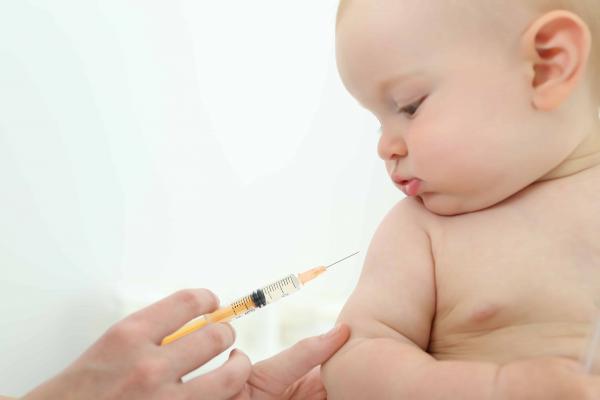
Vaccines. The word stirs up a lot of emotion and controversy among parents - myself included. In 2005, I met a wonderful family who had two perfectly healthy children. Sadly, their beautiful five-year-old caught the flu and died just a few days later.
At the time, the flu vaccine was optional for five year-olds and the parents didn't understand the risk of opting out of this particular vaccine (now the flu vaccine is recommended annually for everyone over six months old). As these parents learned, there are serious risks from skipping or even delaying vaccines for children of all ages.
As a mom of two who had the opportunity to work directly with top health experts in the United States, I understand the benefits of vaccination. I continue to prioritize the vaccine schedule for my children - ages 13 and almost 11 - because I know that with just a few shots, teens can develop lifelong protection against very serious diseases like meningitis, flu and cancer.
A new survey conducted by Unity Consortium fuels the need for vaccination awareness. The survey shockingly found that vaccination rates may be too low in teens partly because of a lack of understanding and misperceptions about vaccines.
Misperceptions have consequences
The survey found that nearly all parents realize the importance of addressing "hot topics" to help their teens stay healthy, like keeping them safe from STDs (92 percent), avoiding alcohol/drugs/smoking (95 percent), and getting enough sleep (94 percent).
However, somewhat fewer (80 percent) say getting all recommended vaccines is important. As a parent, I understand all too well why we focus on these other topics - we worry about alcohol use, and we can tell when a child isn't getting enough sleep. While there is no obvious sign to alert you to talking about vaccines, they are still a critical part of being healthy now (and into the future).
Missed opportunities for preventative health education
Not all parents and teens realize the value of annual check-ups and regular vaccination - the survey found that four in 10 parents and nearly six in 10 teens believe teens should only see a doctor when he/she feels sick. More than one-third of teens don't know how being vaccinated helps them .... additionally, the survey found that one in four parents believe that vaccines are important for babies and not as important for teens.
This perception effectively reduces the chance for healthcare providers to discuss preventive health measures (such as vaccination).
While most teens (92 percent) trust their doctor when seeking information about their health, nearly half (47 percent) agree they do not like talking to doctors or other healthcare providers. Instead, they turn to their parents. And 87 percent of parents indicated that they shoulder most of the responsibility for getting their teens vaccinated. That's why annual check-ups are so critical.
The CDC recommends that adolescents receive the following vaccines:
Meningococcal
-Two distinct meningococcal disease vaccines (ACWY and B) protect against the most common types of bacterial meningitis. While most people recover from meningitis, permanent disabilities (like brain damage, hearing loss, and learning disabilities) and even death can result from the infection. Receiving both vaccines can help protect your child from these potentially devastating infections. Make sure to ask your doctor about both vaccines - not all doctors proactively offer meningitis B, but that's the strain that causes outbreaks on most college campuses.
Tdap
(tetanus, diphtheria, and pertussis [whooping cough]) and Td Booster (tetanus and diphtheria)- Recently, there have been outbreaks of whopping cough in the United States.
HPV
(human papillomavirus)-The vaccine is most effective at preventing HPV-associated cancers in both men and women when given during the preteen years.
Flu
More serious than a cold, the flu impacts an infected person for up to two weeks ... but can also lead to serious and even deadly complications, like pneumonia. Because the flu strains change, a flu vaccination is needed annually. While there is still a low risk of catching the flu even with the shot, patients will often experience a milder case of the flu if vaccinated.
These diseases are rare, but they are rare because we have vaccines that prevent them. A coordinated communications effort between teens, parents and healthcare providers can positively impact preventive health decisions. One of the most important steps you can take is to get your teen assessed for what vaccines they need, especially at their 11-12 year old and 16-year-old annual check-ups, when routine vaccination is recommended.
Taking time to discuss why we get immunized can have an impact on how teens think about their health now and how they'll view this important step as adults, which will impact future generations. Do your part as a parent and educate yourself and your children. Visit the Unity Consortium for more information about the importance of preventive teen health strategies and vaccination.

